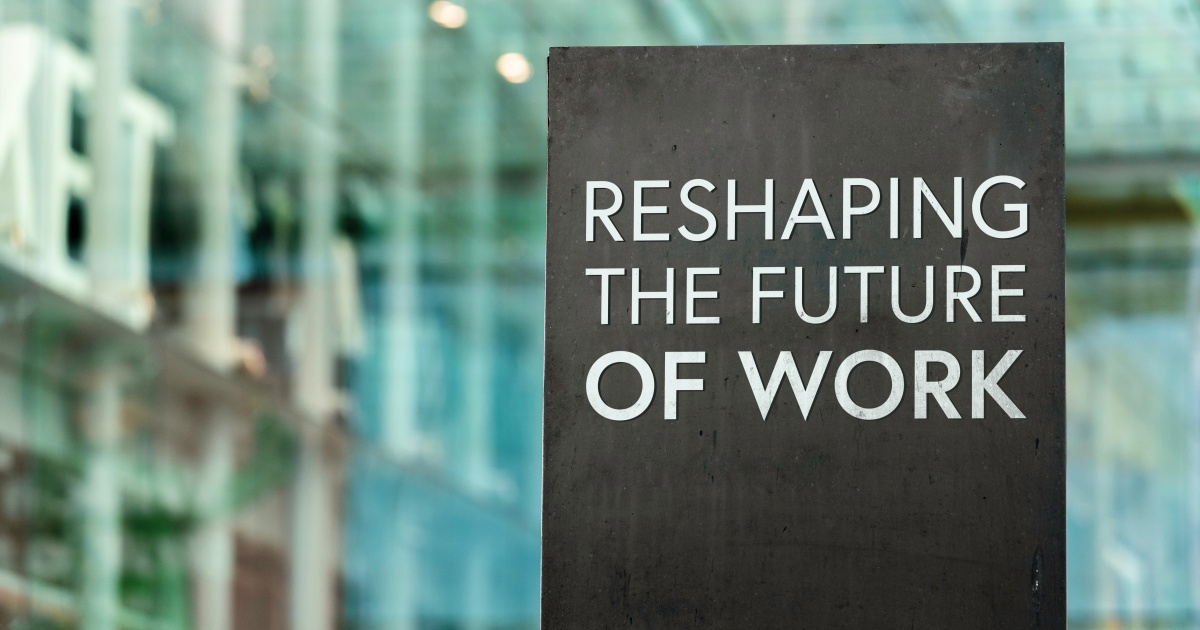
Future of Work Expo is in motion, readers!
This expo is part of the #TECHSUPERSHOW experience taking place right now at the Broward County Convention Center in Fort Lauderdale, Florida.
On Tuesday, I joined a Future Of Work Expo session that was titled “The IT Opportunity for Future of Work – Leveraging Data, Agile Operations and an Intelligent Workforce.” Moderated by Parallel Communications CEO Glenn Goldberg, the session’s panelists included:
A bit about the panelists’ organizations:
- Evolve IP is a cloud, IT and voice solutions provider. The basis behind it? In Coben’s words, “When you think about IT services — PCs, servers, firewalls, appliances, phone systems and so on — and when you think about everything that’s part and parcel with the post-pandemic economy, more of it than you’d think represents outdated strategies. So, Evolve IP replaces the need for all physical IT equipment, and we do so for a number of reasons; IT teams are overstaffed as it is, there are tons of newfound security issues with hardware due to work-from-home and hybrid environments, and of course there’s the capital it takes to provision and secure hardware… only to have to replace it just a few years later, in too many cases. So, we take users out of those endless and often-futile cycles. We modernize.”
- Stackyon, as Jodoin put it in a self-described short-and-sweet manner, “is a low-code application hub. We’re a platform that companies can use to build their respective reference applications. In layman's terms, we improve many of their functional business processes at scale.”
- Protected Harbor is a DevOps and MSP-minded company. As Luna explained, “We help MSPs and application vendors move from platform to platform, from cloud to on-prem and vice versa, and we stabilize the longevity of their systems. Right now, we’re also working on AI (as is everyone else, admittedly), and we focus on infrastructure for teams. We’re not a data science company yet, build out the infrastructural needs for others and go from there.
Partway through the session, Goldberg asked an important, multilayered ‘lightning rod’ type of question: “Our economy is based on processes now; far more than it is on hardware and the like. That said, is the industry where we think it needs to be? Is it lagging? Surging? And what’s next?”
“I think the concept of continually buying and replacing hardware is, without question, one of the single most archaic things that still exists today,” Coben immediately answered. “When you think of purchasing, procuring, provisioning, managing, and then reclaiming IT equipment — a lot of IT buzzwords that basically mean similar things — it all circles back to just starting over. The fact of the matter is this: You have to follow real-time demands. If I were to pull in a pallet of 300-some-odd, ready-to-ship PCs and drop them off someplace, it could take as many as 1,200 hours to set everything up. But in the cloud world? Minutes, friends. Minutes. Why wouldn’t anybody want that? So, we need hardware-based architectures moved to cloud-based architectures. Simple.”
Then, Jodoin chimed in. “I agree. Companies are struggling, and so many applications need replacing. Past needs are being dwarfed by modern ones. Homegrown systems are indeed, as mentioned, lagging. So with virtual office spaces more in demand nowadays, you need the newest goodies to get processes done most efficiently. Legacy systems need to be replaced smartly, and more needs to live in the cloud so businesses can operate smoothly wherever their employees are.”
Luna wrapped things up, saying “MSPs of 2030 may be dealing with these issues too, but they shouldn’t (in six years or so) be dealing with as many cumbersome integrations. We need more experts in the now, not in the what was. Things always come back to ‘the pivot’ — pivoting to getting the right work done, and in the right ways. And while no system or process is totally pain-free — or definitively free, costs-wise — it’s really important to keep pace with evolution, understand clients’ gaps, and help fill them in.”
Learn more here.
Edited by
Alex Passett